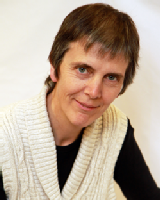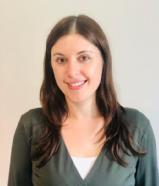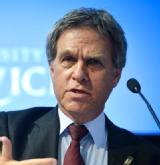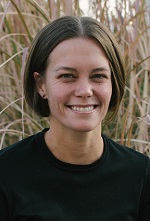Potential supervisors
Public Health:
 |
Roberto VivancosRoberto Vivancos is Professor of Public Health within Warwick Medical School. He has over 16 years’ experience in health protection at senior level and has worked in public health response of emerging infections (e.g. Mpox, Zika virus, avian flu) and in two pandemics (Swine flu and COVID-19). His research is mainly translational, focusing on improving surveillance, understanding risk of transmission and the impact of prevention and control measures of infectious diseases. His work is multidisciplinary and uses a mixed methods approach, combining quantitative analysis and qualitative approaches. |
 |
Craig Thompsonis an Assistant Professor within Biomedical Sciences. Craig's research focuses on the antigenic evolution and pandemic potential of viruses (mainly influenza and coronaviruses), viral disease severity and vaccine design. |
 |
Dan Lassersonis Professor of Acute Ambulatory Care at Warwick Medical School. Dan's research looks at acute medical care in ambulatory and Hospital at Home care models. |
 |
Frances Griffithsis Professor of Medicine in Society, Warwick Medical School. Her research looks at information and communication technology in health care in low and middle income countries, along with living with long-term conditions. |
 |
Nicole Robbis Assistant Professor at the University of Warwick Medical School, a visiting lecturer at the University of Oxford and a Royal Society Dorothy Hodgkin Fellow. Her research interests include the development of rapid pathogen diagnostics, using biophysics techniques to study viral replication, and the application of machine learning algorithms for pathogen detection. |
 |
Darius Koesteris Assistant Professor in Cell Biology. Darius' laboratory focusses on the effects of mechanical forces in remodeling the plasma membrane and the underlying actin cortex. He uses a combination of in vitro methods based on reconstituted, minimal systems of the cell membrane-cortex composite as well as live cells in culture. |
 |
Dimitris Grammatopoulosis Professor of Molecular Medicine at Warwick Medical School. His research includes redictive tools for identifying women at risk of depression during pregnancy and postpartum along with understanding barriers to accurate early laboratory diagnosis and patient centric control of gestational diabetes mellitus. |
 |
Heather DraperLink opens in a new windowis Chair of Bioethics in WMS. She is interested in the ethical dimensions of pandemic planning particularly in relation to healthcare staff – for example, the blurring of boundaries between clinical ethics and public health ethics during pandemics, workers’ obligations during pandemics and measures that may lessen the ethical burdens on staff. More information on her research interests can be found on Heather Draper’s personal webpage, Heather Draper’s Google Scholar pages, and the Warwick Medicine, Ethics and Society website (which contains information on her current and previous research projects). |
 |
Tom SorellLink opens in a new windowis Professor of Politics and Philosophy in the Dept. of Politics and International Studies at Warwick, and directs the Interdisciplinary Ethics Research Group (IERG). He works on the ethics of responses to pandemics by individuals and governments, and more generally on the ethics of response to emergencies, including civil war and terrorism. He has published a recent article on the ethics of Covid surveillance in the early stages of the pandemic, and has previously written about the ethics of parental refusals of the MMR vaccine for their children. He is PI of an ongoing AHRC-DFG project on the ethics and epistemology of vaccine hesitancy in the Covid pandemic. He is willing to supervise work on the relation of medical ethics to public health ethics, and the technology developed for track and trace regimes. |
 |
Keith HyamsLink opens in a new windowis Professor of Political Theory and Ethics at Warwick. A philosopher by training, Keith’s interdisciplinary research programme looks at ethics and justice issues arising in the context of health policy, pandemic response, climate change, international development, and technological risk. His policy work includes advising a broad range of UK and international NGOs and government bodies, including the UK Cabinet Office. Current research projects include ‘Supporting Just Response and Recovery to Covid-19’ , which investigates the effects of the Covid pandemic on youth in informal urban settlements across Africa; and ‘Covid Observatories’, which looks at the experience of Indigenous Peoples worldwide during the Covid pandemic. |
Mathematical epidemiology:
 |
Isty RysavaIsty Rysava is an Assistant Professor appointed jointly between the School of Life Sciences and the Mathematics Institute. Isty is a quantitative ecologist with interest in the evolutionary, environmental, and social determinants driving disease dynamics, focused on applications in policy, health inequalities, and justice. The specific focus of her research is to investigate how heterogeneity in environment, life-history, and behaviour of hosts and pathogens modulate contact rates and disease transmission; examine trade-offs that limit pathogen virulence and host preference; and characterize the patterns of outbreak variation across time and space. She uses a combination of empirical field and serological data, large-scale experiments, computational simulations, and mathematical and statistical modelling to predict likely development patterns to assess the potential benefits and resource requirements for management and surveillance strategies for disease systems. |
 |
Emma DavisEmma Davis is an Assistant Professor and Royal Society University Research Fellow in the Department of Statistics. Her research is mainly focused on modelling vector-borne diseases in tropical and sub-tropical regions. Emma is interested in the stochastic behaviour of disease transmission at low prevalence (representing both early and late stage epidemic dynamics) and indirect surveillance strategies, including mosquito capture and testing for mosquito-borne diseases. During the COVID-19 pandemic she also investigated the implications of individual behaviour and adherence for non-pharmaceutical intervention efficacy (e.g. Test, Trace and Isolate in the UK), which has led to additional research interests in the heterogeneous interactions between behaviour, contact patterns, and disease transmission. |
 |
Matt Keelingholds a joint Professorship between the Mathematics Institute and the School of Life Sciences. Matts research focuses on the three E's: Epidemiology, Evolution and Ecology, particularly looking at how spatial structure, heterogeneities and stochasticity affect the emergent population-level dynamics using a wide range of modelling tools and concepts. |
 |
Mike Tildesleyis a Professor in the Zeeman Institute for Systems Biology and Infectious Disease Epidemiology Research at the University of Warwick. His research focuses upon the development of models of infectious diseases and their utility as predictive tools. He has a particular interest in the predictive power of models in the early stages of disease outbreaks, when there is significant uncertainty regarding the spread of disease |
 |
Louise Dysonis Associate Professor in Epidemiology appointed jointly between the Mathematics Institute and the School of Life Sciences. Her research interests involve using techniques from mathematics and statistical physics to analyse biological and epidemiological systems. In particular working with strong experimental links and in discovering the simplest possible explanatory mechanisms for observed data. |
 |
Xavier Didelotis Professor of Statistical Epidemiology and Genomics in Life Sciences. His research looks at the way bacterial pathogens evolve, spread and cause disease. A key aim is to develop new bioinformatics and statistical methods that can handle the very large amounts of data made available by novel high-throughput sequencing techniques. |
 |
Kat Rockis Associate Professor in Mathematics with particular interest in vector-borne transmission and neglected tropical diseases. Kat is keen to develop new modelling approaches and theory as well as answering highly focused applied research questions which can aid in the control or elimination of diseases. |
 |
Simon Spenceris Associate Professor in Statistics. He is part of the Zeeman Institute for Systems Biology and Infectious Disease Epidemiology Research (SBIDER) and the Warwick Analytical Sciences Centre (WASC). His research interests include Bayesian inference applied to epidemiology, model comparison and model assessment, stochastic epidemic models, statistics for analytical science, outbreak detection and source attribution methods. |
 |
Erin Gorsichis Associate Professor in School of Life Sciences. Erin is a quantitative disease ecologist with broad interests in disease dynamics, wildlife health, and conservation. Her work combines host ecology or community ecology to understand infection dynamics with research interests to include disease dynamic consequences of co-infecting pathogens, emerging infectious disease, land use change and vector borne disease, network and spatial models of diseases transmission and wildlife health and population dynamics. |
 |
Matthew TurnerLink opens in a new windowis a professor of Theoretical Physics, attached to the Zeeman Institute at Warwick. His group works on several problems associated with collective decision making and control, in both animal and human systems. Their work on rational behaviour and control during epidemics asks the following question: How should a policymaker plan to intervene to minimise the overall effects of an epidemic? We believe it is important to first ask this question in the idealised case where we have perfect information about the disease and individuals are perfectly rational. While this is a highly stylised setting it represents an important proof-of-principle. From this starting point we can make progress towards scientifically sound policy tools that optimise an objective function for the future. This objective function typically includes the costs associated with catching a disease, as well as those of social distancing. In principle, both individuals and governments have objective functions and these might be different. This casts the problem as one in which individuals seek to restrict behaviour (say) so as to minimise their own costs (maximise their objective function) while Governments seek to offer costly incentives to change individual behaviour so as to target a government level objective function that may be rather different. The main technology that we employ is that of control theory, in which the future epidemic trajectory and behaviour is optimised at two levels of the heirarchy: for individuals and for government. More recent projects include establishing Nash equilibrium behaviour for individuals and then inferring the objective function from behavioural data. For this we use a new machine learning technique inspired by physics-informed machine learning. This involves a methodology that we refer to as “Nash Neural Networks”. In the future we would like to include a more faithful description of uncertainties and a more realistic heterogenous population, currently treated in the mean field using a simple SIR model (or variants thereof). |
 |
Angela Noufailyis an Associate Professor of Medical Statistics at Warwick Medical School. She works on epidemiological surveillance and the statistical modelling of outbreaks. Through her collaboration with the UK Health Security Agency, she developed, with colleagues, improvements to their algorithm for infectious disease surveillance and evaluated their algorithm for syndromic surveillance. They now aim to introduce machine learning to provide further accuracy. |
Behavioural Science:
 |
Nick Chateris Professor of Behavioural Science, Warwick Business. He works on the cognitive and behavioural sciences, especially reasoning, decision making and language. He applies his experimental, computational and mathematical studies to public policy and the private sector. |
 |
Neil Stewartis Professor of Behavioural Science at Warwick Business School. He has been using mass transaction data to understand how people's behaviour and financial situation has changed during the COVID-19 pandemic. |
 |
Andrea Isoniis Professor of Behavioural Science at Warwick, Business School. He is an experimental and behavioural economist. His research studies human behaviour of under controlled laboratory conditions using insights from economic theory and cognitive psychology. He is also interested in exploring how market interaction shapes people's preferences, and in various aspects of strategic behaviour, including coordination, bargaining and other-regarding behaviour. |
 |
Suzy Moatis Professor of Behavioural Science at Warwick Business School, where she co-directs the Data Science Lab. Her research investigates whether data on our usage of the Internet, from sources such as Google, Wikipedia and Flickr, can help us measure and even predict human behaviour in the real world. |
 |
Tobias Preisis Professor in Behavioural Science and Finance at Warwick Business School. His interdisciplinary research investigates whether data from sources such as Google, Wikipedia, Twitter, Flickr and Instagram can be used to: reduce delays in measurement of human behaviour, measure behaviour which previously could not be measured and improve predictions of future behaviour. |
 |
Hossam Zeitounis Associate Professor Behavioural Science Group, Strategy & International Business at Warwick Business School. His main research interests looking at behavioural science, strategic management and corporate governance. Applying an interdisciplinary approach using organizational, psychological and economic perspectives. |
 |
Daniel Readis Professor of Behavioural Science at Warwick Business School. Daniels research focuses on judgment and decision making including intertemporal choice, choice under uncertainty and risk, heuristics and biases. Philosophical psychology. |
 |
Tim Mullettis an Assistant Professor in the Behavioural Science group at Warwick Business School. Tim's research focuses on how people make choices, and search information when comparing options. |
